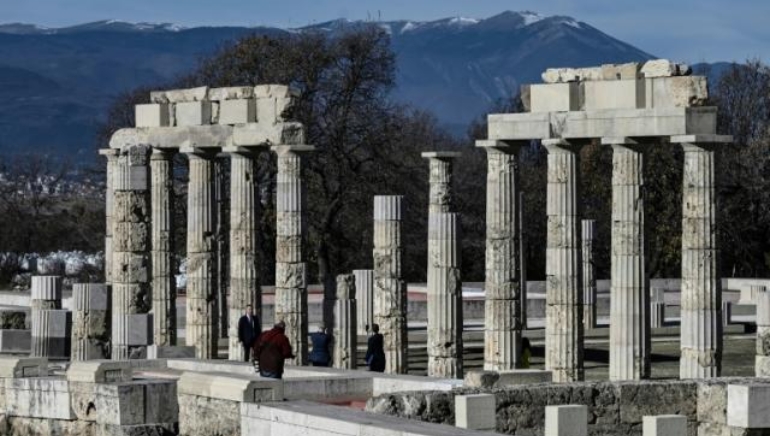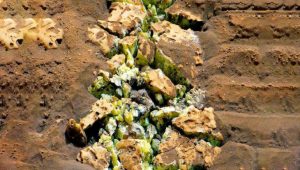In a momentous ceremony on January 5, Greek Prime Minister Kyriakos Mitsotakis announced the reopening of the Palace of Aigai, a fourth-century BC site where Alexander the Great was crowned King of Macedonia. The €20 million, 16-year restoration project aimed to revive the palace’s past glory and reinforce its status as a “monument of global importance.”
Situated near the modern Greek village of Vergina, the 15,000 sq m Palace of Aigai was the capital of the dominant Macedonian kingdom, boasting a spiritual significance. Built by Philip II, the father of Alexander the Great, the palace and nearby tombs, including that of Philip, were crucial components of classical Greece.
The restoration, initiated in 2007 with support from the European Union, brought back the royal palace, colonnade, and agora—the space where ancient Macedonians debated important matters. The courtyard, where Alexander was proclaimed king with an 8,000 capacity, is a historic site marking the launch of his military campaign.
Despite the Romans destroying the palace in 148 BC, extensive excavations from 1865 onwards revealed its historical significance. The site, now a UNESCO World Heritage Site, reaffirms Greece’s identity throughout the centuries.
Greece’s increased investment in its antique sites, a significant tourist revenue source, underscores its commitment to preserving and showcasing its rich cultural heritage. The Palace of Aigai’s reopening adds another jewel to the country’s cultural crown, inviting visitors to explore the legacy of Alexander the Great.















